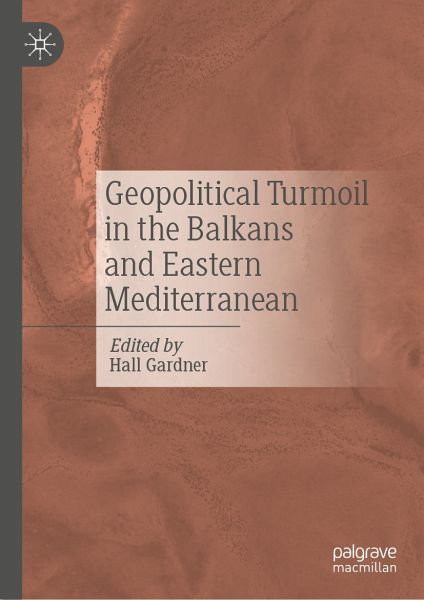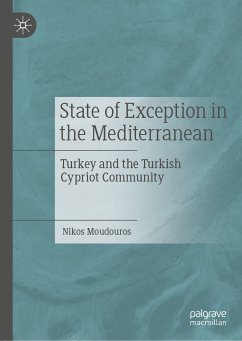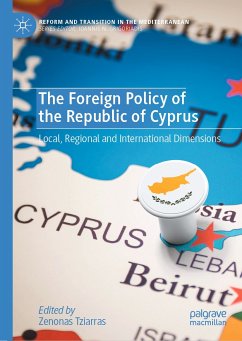
Geopolitical Turmoil in the Balkans and Eastern Mediterranean (eBook, PDF)
Versandkostenfrei!
Sofort per Download lieferbar
112,95 €
inkl. MwSt.
Weitere Ausgaben:

PAYBACK Punkte
56 °P sammeln!
This edited book will examine the Balkans and Eastern Mediterranean from multidimensional geo-strategic, political-economic, socio-cultural/religious and demographic perspectives. It analyzes the conflicting geopolitical interests of the major and regional powers, as well as those of NATO and the European Union, with a focus on energy, democracy and corruption, shifts in population, as well as religious political influence. The authors argue that the US, NATO and EU leaderships can no longer afford to ignore the two regions - if the increasing potential for conflict is to be averted. The Balka...
This edited book will examine the Balkans and Eastern Mediterranean from multidimensional geo-strategic, political-economic, socio-cultural/religious and demographic perspectives. It analyzes the conflicting geopolitical interests of the major and regional powers, as well as those of NATO and the European Union, with a focus on energy, democracy and corruption, shifts in population, as well as religious political influence. The authors argue that the US, NATO and EU leaderships can no longer afford to ignore the two regions - if the increasing potential for conflict is to be averted. The Balkans and Eastern Mediterranean are returning to a major position in the contemporary geostrategic nexus since NATO began a new expansion into the Balkans by bringing Montenegro in 2017 and North Macedonia in March 2020 into membership, after its previous expansion to Slovenia in NATO's "Big Bang" in 2004 and to both Albania and Croatia in 2009.
Dieser Download kann aus rechtlichen Gründen nur mit Rechnungsadresse in A, B, BG, CY, CZ, D, DK, EW, E, FIN, F, GR, HR, H, IRL, I, LT, L, LR, M, NL, PL, P, R, S, SLO, SK ausgeliefert werden.












